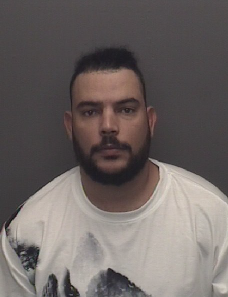Scholarship Available for Future Teachers
Scholarship Available for Future Teachers
by STATE SENATOR VANETA Â BECKER
JANUARY 3, 2024
High school and college students interested in teaching are encouraged to apply for the Next Generation Hoosier Educators Scholarship through Jan. 31.
Created by the Indiana General Assembly, the renewable scholarship awards recipients up to $10,000 for a maximum of four academic years totaling $40,000.Â
Qualified students must have either graduated in the top 20% of their high school class or earned a score in the top 20th percentile on the SAT (1190) or ACT (26). Students must also commit to teaching in Indiana for at least five years after college graduation.
Applications are available through ScholarTrack here.
Indiana State Police Accepting Applications for Criminal Analyst Supervisor Positions
South Region – covering the Evansville, Jasper, Sellersburg, Bloomington and Versailles Districts
January 3, 2024
The Indiana State Police is accepting applications for three (3) Criminal Analyst Supervisor EVII positions to serve as civilian employees of the Indiana State Police whose primary responsibility is to assist the Indiana Intelligence Fusion Center Commander with primary duties of maintaining operations within the Special Investigations Division.
The three (3) supervisory positions will cover the whole state, one (1) in each of the following areas:
- North Region – covering the Peru, Lafayette, Lowell, Bremen and Fort Wayne Districts
- Central Region – covering the Indianapolis, Pendleton, and Putnamville Districts
- South Region – covering the Evansville, Jasper, Sellersburg, Bloomington and Versailles Districts
*The successful candidate will be required to reside within any of the Districts for the Region they are selected to represent. A Department vehicle will be made available for travel to the other Districts within the supervisory scope, and for meetings at the Indiana State Police General Headquarters in Indianapolis.
Job Duties
- Manage the intelligence database including input, processing and output procedures in an automated data processing or computer environment.
- Supervise, train, and counsel Criminal Analysts Assigned to the Indiana Intelligence Fusion Center in using and operating data processing equipment and procedures.
- Keep the Indiana Intelligence Fusion Center command staff apprised of activities within the Section.
- Supervise the input, processing, and output of all intelligence in an Automated Data Processing or computer environment.
- Ensure completion of required reports within specified time frames.
- Supervise the preparation of the newsletter, crime bulletins, and summaries as required.
- Document the performance of subordinate employees assigned to the Indiana Intelligence Fusion Center.
- Verify analytical reports and check for accuracy and adequacy.
- Draft and disseminate information through written and oral presentations.
- Recommend policies for processing information into the data bank.
- Receive, process, and audit records of confidential informants documented by ISP.
- Plan daily routines, procedures, deadlines, and work allocation for subordinate personnel.
- Provide analytical service by converting raw intelligence into a completed comprehensive indicative product.
- Provide related training to Department personnel as necessary.
- Perform other duties as required.
Job Qualifications
- A Bachelor’s degree in an appropriate field; OR a minimum of ten (10) years of prior law enforcement experience in intelligence analysis; OR a minimum of ten (10) years equivalent military experience in intelligence analysis; OR a combination of law enforcement and military experience.
- Ability to obtain and maintain a minimum of “Secret” level security clearance to work in the Indiana Intelligence Fusion Center. [NOTE:Â Security clearances are granted by federal partners or the US Department of Defense. The Indiana State Police (and the Indiana Intelligence Fusion Center) has no control over the ability to secure clearance for an employee.]
- Ability to learn and apply computer software applications utilized in the Criminal Intelligence Section.
- Submit to and successfully pass initial and subsequent periodic security-related Department polygraph examinations.
- Ability to become familiar with related state and federal laws.
- Must obtain and maintain IDACS certification throughout a career.
- Ability to maintain confidentiality.
- Must be able to supervise, manage, instruct, and counsel subordinates and evaluate their work performance.
- Must be able to organize and schedule the daily work of subordinates.
- Must be able to access, input and retrieve information utilizing computer systems.
- Must be able to perform analysis and interpret criminal intelligence information.
- Must be able to apply research principles.
- Ability to communicate effectively, both verbally and in writing.
- Must be able to prepare clear and comprehensive reports.
- Must be able to work with minimal supervision, prioritize, and meet deadlines.
- Must be able to organize, file, and retrieve information.
BOARD OF PARK COMMISSIONERS REGULAR MEETING
BOARD OF PARK COMMISSIONERSÂ REGULAR MEETINGÂ In KEVIN WINTERNHEIMER CHAMBERSÂ In ROOM 301, CIVIC CENTER COMPLEXOn WEDNESDAY, JANUARY 4, 2023Â At 12:00 NOON
REVISED AGENDA
1.   CALL TO ORDER
2.   MEETING MEMORANDUM  DECEMBER 21, 2022
3.   CONSENT AGENDAÂ
     N/A                          Â
4. Â Â OLD BUSINESSÂ
     N/AÂ
5.   NEW BUSINESS      Â
     a. Request Re: Any Other Business the Board Wishes to Consider and Public Comments
6.   REPORTS Â
     a. Steve Schaefer- Interim Parks Department Director          Â
7.   ACCEPTANCE OF PAYROLL AND VENDOR CLAIMS
8.   ADJOURN
The Social Symptom: Educators Worry About Pandemic Impact That Has Not Healed
The Social Symptom: Educators Worry About Pandemic Impact That Has Not Healed
Gil Speer has taught business at Zionsville Community High School for over 17 years. Every semester, he has his students give presentations to teach their peers about things like personal finance, accounting, and business management.
Before COVID-19, this was not a problem. Now, however, he has had multiple students ask if they can present to him one on one or who refuse to do the assignment completely. Some students would rather take a zero, or a lesser grade on the assignment than speak in front of their peers.
“Students are a lot less outgoing,†said Speer. “Since COVID, they’re timider, they’re more reclusive.â€
Against his wishes, Speer has accommodated these new students’ requests.
“They did a fantastic job one on one,†he said, “but they didn’t have the courage to present in front of others.â€
Across Indiana, learning loss has impacted education at every level, but even with things back to “normal,†teachers, students, parents, and administrators say social deficiencies caused by COVID-19 are just as damaging and are not going away any time soon.
Although immeasurable, COVID-19 has caused a noticeable loss of social skills, especially among children. The United Nations Children’s Fund (UNICEF) has even created a resource to help parents aid their children who have suffered developmentally.
The World Health Organization (WHO) also found the lockdown has caused a lack of socialization and social participation among the youth.
From at least March until August 2020, students from all school districts in the state stayed home and attended classes online.
“Without direct instruction and regular face-to-face contact with students, the final few months of the 2019-2020 school year was almost a complete loss,†said Christina Faulkner, a high school teacher and publications advisor at New Albany High School.
Faulkner’s school, like many others, held classes over Zoom. Faulkner said that engaging students during these times was “nearly impossible. Even ‘good’ kids or ‘polite’ kids were hard to engage.â€
Faulkner’s school district did not require students to have their cameras on during these Zoom classes. She said this made it even harder to see if students were engaged. Along with this, Faulkner missed seeing her students and interacting with them. She said she was lucky, however, because she had one class that enjoyed interacting with their peers and teachers.
“I remember one time I logged on and all of my newspaper kids had their cameras on—they had gotten together and convinced each other to do it because they knew I was missing seeing kids. It was truly a bright moment during a pretty sad time in my teaching career,†said Faulkner.
Faulkner said that the students’ extended time on social media during the pandemic has shortened their attention spans and made it harder for teachers to entertain students with activities that were once seen as “engaging.â€
“So many of them were unsupervised during COVID and basically got to do what they wanted whenever they wanted, so structure and a traditional school day is difficult for them to endure,†said Faulkner. “Additionally, many of us (teachers) lowered our standards and expectations for the quality of student work these last few years, so asking them to turn in quality work and adhere to stricter due dates has proven to be a challenge.â€
Speer has had similar issues with getting his students to adhere to deadlines.
“I’m kind of concerned about this generation, or that this group of students and what they experienced and being afraid to fail in meeting deadlines,” said Speer.
Not all skills can be measured with a standardized test. One of the skills students need that has been weakened is communication.
“Since I teach classes where students are expected to work together and communicate effectively, I see students struggle with talking to their peer’s face to face,†said Faulkner—similar to Speer, who found his students struggling to socialize and speak to one another.
“Because of that lack of social skills and abilities, how to treat others with respect and kindness and things that we preach all the time, you almost have to teach it over again,†said Speer. “And you have to say, ‘This is an expectation in our classroom,’ you know? And sometimes it gets across to them and sometimes they learn it the hard way.”
Speer added that this lack of maturity is especially difficult for students taking AP classes, because they are academically intelligent enough to succeed but are not responsible enough to handle the social aspects of being in those types of classes.
Dominic Marchese, a senior at ZCHS and a student of Speer’s, was only a second-semester freshman when COVID-19 hit. He shared that he felt he’d missed many of the typical high school experiences of a kid and that everyone’s social life has been impacted.
“I’ve seen a lot with the underclassmen this year. Like, they really don’t have the socializing skills that a lot of us had coming in freshman year,†said Marchese. “I feel really grateful for at least having that semester of freshman year because a lot of these freshmen and sophomores, you know, they’re just very socially awkward and don’t really communicate well.â€
Marchese said he admits his social skills were affected.
“Not to call me and my friend out, but like, neither of us are too good with talking to girls and stuff,†said Marchese. “And I’d say that has that missing social aspect. It definitely had a big impact on like, you know, guys and girls talking and stuff. And like, I’d say, all of us never really got that.â€
Missing out on typical high school milestones and memories has led to students trying to make up for lost time.
“I feel like this year, I’ve heard a lot of people and even myself say that, like, you know, I’ll make it my mission to go to all these football games, all these basketball games,†said Marchese, “because, you know, we weren’t really able to go to that kind of stuff.â€
Marchese’s mother, Renee Marchese agreed.
“He didn’t have interaction with girls for like two years during that, you know, from freshman through sophomore, where you learn cues, you know, like emotional cues or, like, are you flirting with me?â€
She shared that although her children were able to maintain and develop or catch up on their social skills, not all their peers were so lucky.
“I think that I have seen a lot of regression in many kids in that. They’re really quick to argue. They don’t understand how to communicate with each other.â€
These effects are trickling their way into the higher education systems as well.
Dr. Jeffrey J. Malanson is a special assistant to the chancellor for strategic initiatives and associate professor of history at Purdue University Fort Wayne. He has been developing COVID-19 protocols since the beginning of the pandemic for the university. Currently, the university only asks students to self-report symptoms if they are sick.
“My sense is that even that will probably go away at the end of this semester because it’s, you know, at a certain level, we just kind of need to treat this and integrate this as a normal part of life,†said Molanson. “COVID isn’t going away anymore, you know, at this point, and so we probably need to get past treating it as a separate thing.â€
Molanson has also noticed that students have been more involved as a result of things going “back to normal.â€
“But we’ve certainly experienced that life on campus has been much more vibrant than it was even the in some of the years before COVID,†said Molanson. “I think because people are excited to be kind of back to normal.â€
Molanson said they have surveyed students who have returned to campus, and a majority have reported their favorite thing is being back with other students. This joy for social interaction doesn’t seem to be translating into the classroom, however.
“But it is really interesting that students seem, in a lot of classes, students seem much less willing or eager to, like, participate in class discussions, they seem when we actually are trying to do academic work in classes, they seem a bit more closed off,†said Molanson.
Molanson sees this as a lasting issue.
“I do think actually, it’s, we’re permanently changed,†said Molanson. “And I think the big change is going to be that even kids as young as 2 and 3 years old were impacted, oftentimes in negative ways, by losing out on even just being at the daycare and interacting with other kids in that space.â€
Only 10% of parents with children 6 or younger used daycares in the spring of 2020.​
Dr. Isabel Nuñez is the sean of the School of Education and a professor of educational studies at Purdue University Fort Wayne. She said that student teachers were forced to teach students online, and although they better learned how to use technology, they missed out on the typical classroom experience.
Nuñez doesn’t think missed content will be the biggest issue going forward.
“I don’t think it’s the content, right? I don’t think it’s that they’re not going to know this or that fact about, you know, American history or world history, or they’re not going to have this, you know, formula in math, you know, memorize that. Like, I think all of that will be fine,†said Nuñez. “I think the harder thing is those, those interpersonal skills and those relationships, right?”
Hailey Pardue, a senior at Purdue University with plans to become a K-12 teacher next year, shared how hard it has been trying to learn how to teach in the COVID years.
“I think that the pandemic has made it harder for future teachers because we were not able to have as much experience in the classroom as other teachers have had,†said Pardue.
The few chances Pardue has had at working with children has confirmed these social issues.
“I think the biggest impact that COVID had on schools was the social-emotional aspect. In the school I volunteer at now, we call the second and third graders the ‘COVID kids’ because they act very differently,” said Pardue. “Many of these kids lack many social and emotional regulation that a typical 8-year-old should have.â€
While teachers and administrators work to get students caught up from their learning loss, re-teaching these social skills to the “COVID kids†will be just as important.
“It’s our job to get things ramped back up again,†said Speer.
Although classes are back in person, this lack of engagement and human connection has created effects that go beyond the Zoom room.
“As for long term, I would say COVID stunted students’ growth—emotionally, socially and academically. Each grade level of students missed certain milestones in school, and we are seeing those effects now and will see them for the next 10 years,†said Faulkner
FOOTNOTE:  Recent Franklin College graduate Zachary Roberts made this report as part of his senior project, a capstone requirement for those completing their studies in the Pulliam School of Journalism. His entire multimedia project can be found here
DNR Stocks Coho Salmon And Steelhead Trout Fingerlings In Northwest Indiana streams
Fresh fish alert! Staff from Mixsawbah State Fish Hatchery recently stocked the Little Calumet River, Trail Creek, and Salt Creek with fall fingerling steelhead and coho. The East Branch Little Calumet River received 71,077 winter-run steelhead and 45,142 coho. Trail Creek received 47,575 winter-run steelhead and 48,336 coho, while Salt Creek received 27,523 Skamania steelhead.
The fingerlings stocked this fall will stay in the streams until next spring, when they will migrate to Lake Michigan. They will spend one to two years there feeding and maturing until they return to spawn in the streams where they were stocked.
Anglers, be aware of recently stocked fish when fishing these areas. These fingerlings are currently under the legal size limit and are sensitive to being caught. If you catch undersize fingerlings, consider moving to a different area of the stream or try switching your method of fishing. These new fish are crucial to the continued existence of the northwest Indiana trout and salmon fishery.
Organized Theft Ring Arrest
 On December 29th, EPD Financial Crimes Unit Detectives began investigating several incidents of credit card fraud that totaled over $8,000. The first incident occurred back in October. Employees with a local gas station reported to the detectives that at least 3 different suspects came 42 times using stolen credit cards to pump large amounts of diesel fuel. The suspects were driving different Ford F-350 style trucks.Â
On January 1st, around 6:45 p.m., one of the gas station employees called 911 to report that one of the suspect Ford F-350 trucks had returned to the gas station. The vehicle matched the truck that had been to the gas station on a prior date, which the gas station had on surveillance video. EPD Officers arrived on scene while the suspect, later identified as Lazaro Oulego Gonzalez, was still pumping gas into the truck. Gonzalez, who is not a local resident, was also on surveillance video at the gas station from a prior date.Â
Officers detained Gonzalez and brought him to EPD Headquarters to speak with detectives. Gonzalez claimed that he found a gift card and that is what he used to purchase fuel. The truck did not belong to Gonzalez but he could not tell the detectives who it did belong to. The gift card actually contained information that belonged to a Visa cardholder, who did not give permission to have the Visa card used. Gonzalez was arrested and transported to the Vanderburgh County Confinement Center and charged with four Felony charges; Theft, Forgery, Fraud, and Conspiracy.Â
Officers/detectives found a large bladder hidden under the toolbox in the bed of the truck that Gonzalez was driving. The bladder could potentially hold hundreds of gallons of gasoline. The truck had been making daily trips from one large city to another large  city, back and forth, over the past month.Â
Detectives determined that this crime pattern described is consistent with non-local organized groups of criminals who plant skimming devices on gas pumps, which electronically steal credit card information from unknowing victims. The credit card information is then electronically transferred to blank cards, such as a gift card. The cards are then used purchase thousands of dollars’ worth of diesel fuel. The fuel is then transported to another city to sell it.Â
This is a large operation undertaken by these suspects, costing countless of numbers of victims and businesses across the United States millions of dollars. At this time, Gonzalez is the only suspect who has been arrested in Vanderburgh County for this organized crime ring, although there are other suspects who were involved. If you have any information regarding any other suspects involved in this theft ring, please contact the EPD Financial Crimes Unit at (812) 436-7959. If you have been a victim of credit card fraud, please make sure to report the incident to your local police.Â
Ascension St Vincent New Years Baby in Evansville
Ascension St. Vincent, Labor and Delivery teams at Ascension St. Vincent are thrilled to announce our first babies born in 2023!
We’re happy to welcome baby Axel Herrera Hildago Junior, who was born at 10:56 A.M. at Ascension St. Vincent Evansville. (Last name is “Herrera Hildago”.) He weighs 5 pounds 9 ounces and is 18 3/4inches long.
HOT JOBS
|
|
|











